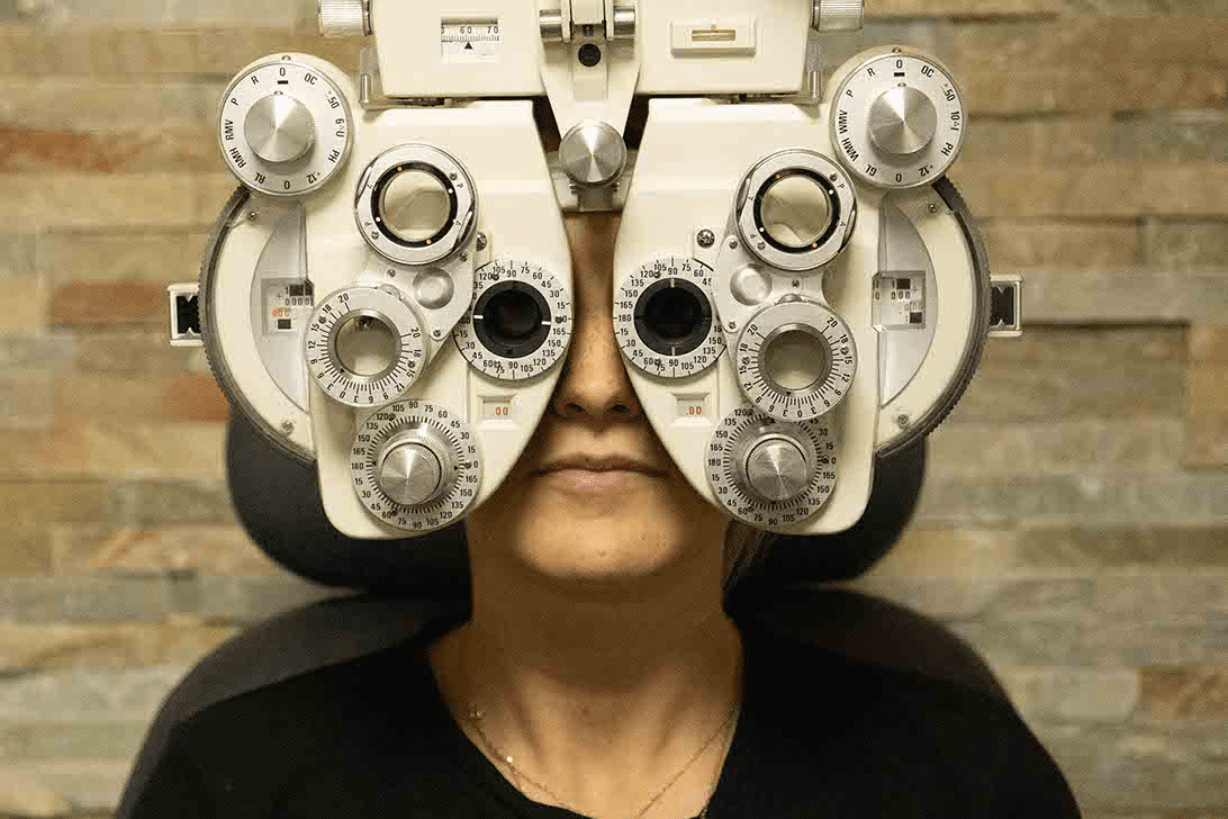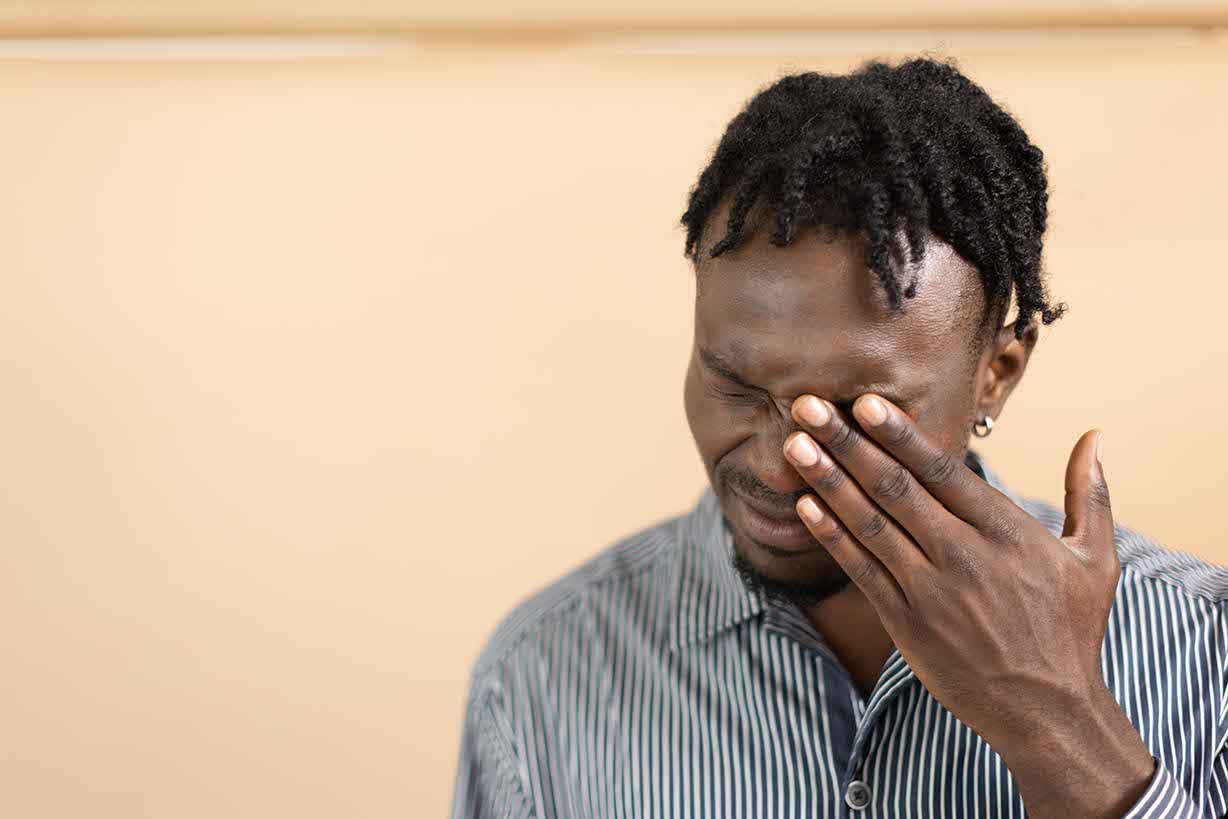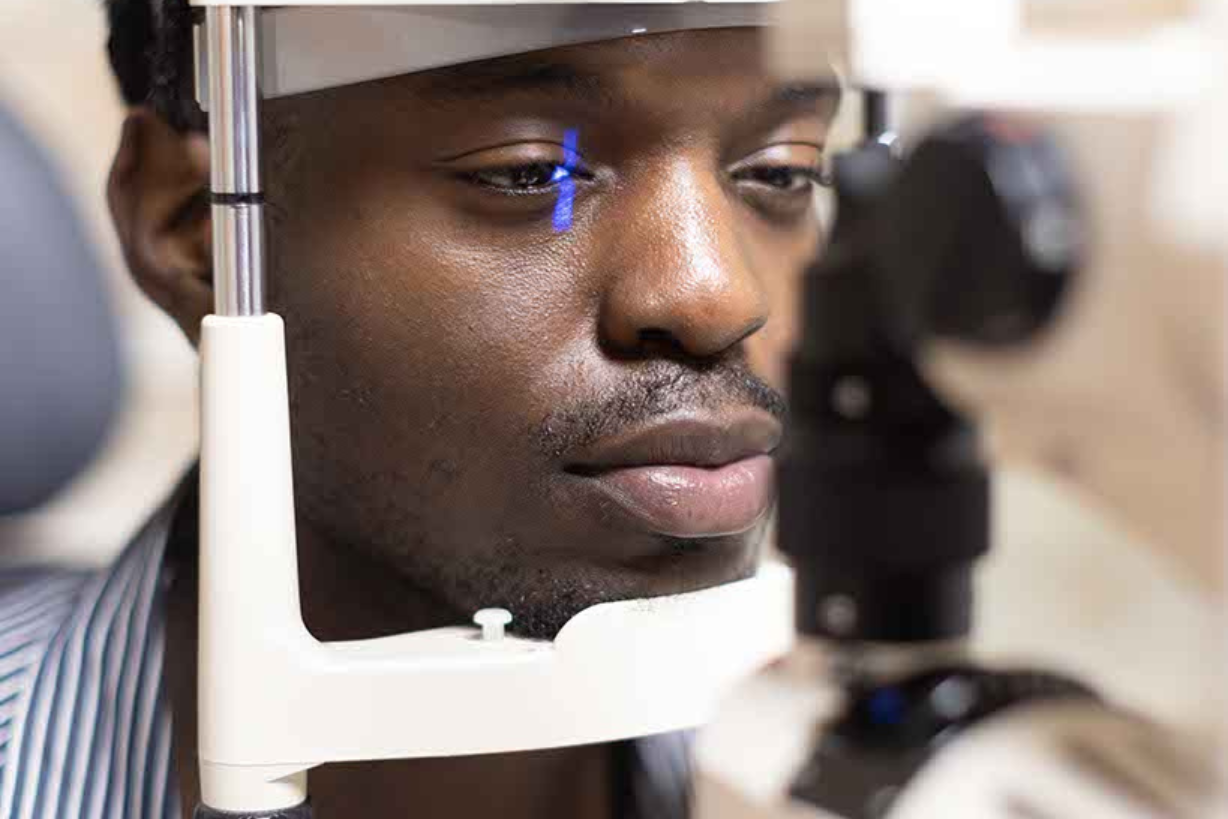First eye exam: What to expect and how to ace it
September 1, 2023

Exams can make anyone feel nervous or anxious, especially if it’s your first eye exam. Not knowing what to expect or what the outcome will be may leave you concerned. However, like with any exam, being well prepared is key. Whether you’re planning on booking an appointment for your first eye exam or the first in a long time, here is the who, how and what to expect in order to ace it!
The who: Who needs an eye exam?
Briefly put: everyone needs yearly eye checkups. Being proactive about your eye health is crucial, which can help detect eye-related illnesses early on in order to find a solution. Even though each one of us needs to get our eyes checked yearly, some age groups are more at risk than others and would need to do more frequent eye tests.
Children should have their first eye exam as early as 3 years old in order to rule out any long-term vision problems. Typically, they also get their eyes checked before they begin their schooling at the kindergarten level.
People in their 40’s begin to notice their vision deteriorating. That’s why we recommend they schedule an eye exam in order to monitor their condition and take the appropriate actions to remedy it.
As you reach the senior years, eye exams will become more frequent and necessary to exclude any possible eyesight related diseases.

The how: How to prepare for an eye exam?
Now that you’ve gone ahead and taken the first step in booking your next eye exam, you will need to prepare for it. Here are a few points to remember in order to be fully ready:
If you have any concerns or symptoms when it comes to your vison and eyesight, it’s important to bring them up. This is the perfect time, as your optometrist will base some of his exams on getting to the bottom of your concerns. Write them down and have them ready when you go.
Your family history is a crucial point that needs to be brought up when going to your eye exam. If there is a history of eye disease such as blindness, age related macular degeneration, or glaucoma for example, your optometrist will assess your risk of developing the same condition.
If this isn’t your first eye exam but you haven’t gone in a while and you wear prescription glasses or contacts, it’s also important to bring them along, as your previous prescription can be used as a reference when new measurements need to be taken.

The what: What to expect at an eye exam?
Eye exams are meant to give you a complete analysis of the health of your eyesight and rule out any underlying eye diseases. Eye exams usually consist of the following:
Visual acuity test: This test is the most common one that the optometrist begins with. This consists of you covering one eye at a time and reading the letters and numbers on a chart placed away from you. This helps your optometrist determine if you’re able to see properly out of each eye.
Refraction test: This test involves a large machine with different lenses that your optometrist uses to test each one on you and assess your vision. It’s essentially like wearing oversized glasses!
Eye pressure test: Checking for glaucoma and other eye diseases is very important. The optometrist will have you place your chin in a machine while a small device comes closer to your eye. A quick puff of wind is then blown into your eye. You don’t need to worry, this is not painful at all and only lasts for a second.
Eye dilation test: Sometimes, your optometrist will want to test the dilation of your eyes in order to examine the retina. This involves a few drops in each eye, allowing the pupils to dilate. Your optometrist will give you disposable sunglasses after this exam as your eyes may become temporarily sensitive to light.
Now that you are prepared with the who, how and what of your first eye exam, you’re ready to conquer it and ace it! If you then need your first pair of eyeglasses or an update to your current prescription, LE LUNETIER can help you find the perfect glasses for you and your eyes!